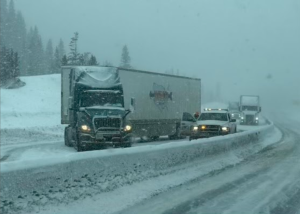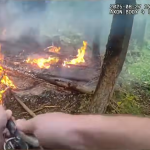How to poop outdoors in a way that won’t harm the environment and other hikers
Sheri Edelson and B. Derrick Taff (Penn State)

Jake Thomas/PACT Outdoors
If you’re one of the 63 million Americans who went hiking last year, chances are you’ve found yourself needing to go, with no toilet in sight.
Aside from personal inconvenience, why is this such a big deal?
Human fecal contamination is a public health concern in natural areas. Pathogens in human poop can remain active for a long time — over a year in outdoor environments — meaning that waste left behind today can cause severe gastrointestinal disease and other sicknesses for future visitors. Fecal waste can enter waterways after storms or snowmelt, harming water quality. Finally, it can be upsetting — or at the least, unpleasant — to encounter someone else’s poop and used toilet paper in nature.
As a researcher and a Ph.D. candidate who study human impacts on parks and protected areas, we have been thinking quite a lot about poop and ways people can tread more lightly on the landscape. Our focus is on Leave No Trace, an environmental education framework — created by an organization with the same name — that helps people implement minimal-impact practices in the outdoors.
Read the full story for free at ColoradoSun.com.

Support Local Journalism

Support Local Journalism
As a Summit Daily News reader, you make our work possible.
Summit Daily is embarking on a multiyear project to digitize its archives going back to 1989 and make them available to the public in partnership with the Colorado Historic Newspapers Collection. The full project is expected to cost about $165,000. All donations made in 2023 will go directly toward this project.
Every contribution, no matter the size, will make a difference.









